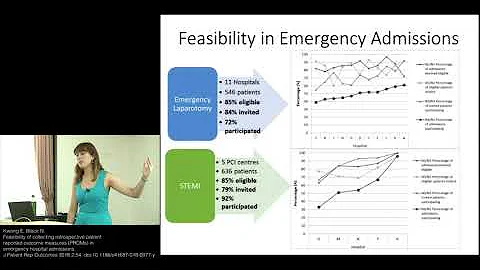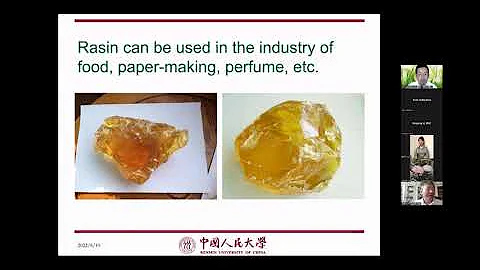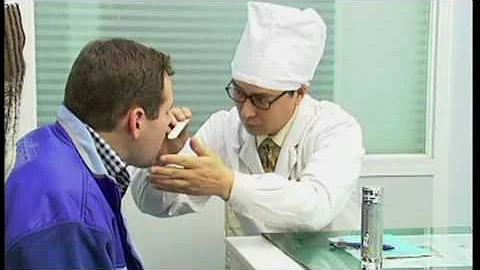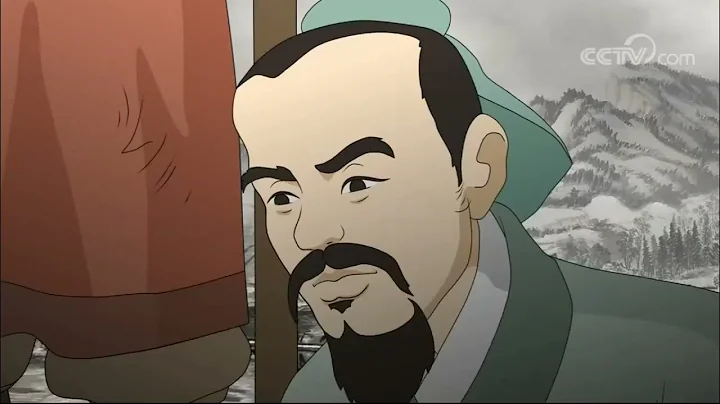![Column opening: [Stories from Zou Xu’s Clinic] is a special column created by a team led by Professor Zou Xu, Director of the Department of Critical Care Medicine, Guangdong Hospital of Traditional Chinese Medicine. It will focus on real cases that happened in Zou Xu’s clinic, wi - DayDayNews](https://cdn-dd.lujuba.top/img/loading.gif)
![Column opening: [Stories from Zou Xu’s Clinic] is a special column created by a team led by Professor Zou Xu, Director of the Department of Critical Care Medicine, Guangdong Hospital of Traditional Chinese Medicine. It will focus on real cases that happened in Zou Xu’s clinic, wi - DayDayNews](https://cdn-dd.lujuba.top/img/loading.gif)
Column opening: [ Zou Xu Clinic Stories] column is a special column launched by Professor Zou Xu, director of the Department of Critical Care Medicine, Guangdong Provincial Hospital of Traditional Chinese Medicine, led by a team. It will focus on real cases that happened in Zou Xu’s clinic. There are stories and stories. The doctor's advice and guidance, professional medical analysis, and some practical, simple and cost-effective daily conditioning tips are introduced to nourish the mind and body, cultivate righteousness, and improve the ability to resist evil.
![Column opening: [Stories from Zou Xu’s Clinic] is a special column created by a team led by Professor Zou Xu, Director of the Department of Critical Care Medicine, Guangdong Hospital of Traditional Chinese Medicine. It will focus on real cases that happened in Zou Xu’s clinic, wi - DayDayNews](https://cdn-dd.lujuba.top/img/loading.gif)
Clinic Story
78-year-old Grandpa He developed retrosternal tightness-like pain during night rest for no obvious reason 2 years ago. He was diagnosed as "acute extensive anterior wall myocardial infarction" in the emergency department of another hospital. After PCI surgery in another hospital, his symptoms were relieved and he was discharged. . One month ago, the patient developed dizziness, unsteady walking, left limb weakness, leaning to the left, left upper limb paralysis and other symptoms and was readmitted to the hospital again. Head CT: 1. A few lacunar cerebral infarcts in in the basal ganglia area of on both sides; 2. Paralateral cerebral white matter degeneration, brain atrophy; 3. Bilateral internal carotid artery and intracranial segment vertebral artery sclerosis, diagnosed as "transient cerebral ischemic attack". Western medicine gave him anti-aggregation, lipid-lowering and spot-stabilizing treatments, and he was discharged after his symptoms improved. After that, the patient continued to have occasional episodes of dizziness and fatigue. He was transferred to various major Chinese and Western hospitals for diagnosis and treatment, but his symptoms did not improve. One day, Guangdong Provincial Hospital of Traditional Chinese Medicine held a free clinic event, and patients with difficult diseases came there one after another. By this opportunity, Grandpa He came to Professor Zou Xu’s free clinic table:
The following symptoms: look, normal energy, dizziness , feeling of lethargy, accompanied by unsteady walking, aggravated after meals; a little chest tightness palpitations , excessive and sticky head sweat, bitter mouth dry mouth . Can't sleep well, can't urinate, but the stool is dry and the discharge is not smooth. The tongue is dark red, the coating is white and greasy, pun intended, the pulse is stringy, is slippery, the chi pulse is slightly sunken, and the Taiyin pulse is obvious. Cardiac color ultrasound showed: coronary heart disease after PCI; segmental wall motion abnormalities; a small amount of regurgitation in the aorta; a small amount of reflux in the tricuspid valve; left ventricular diastolic dysfunction; aortic sclerosis . Head CT: 1. Slight lacunar cerebral infarction in the basal ganglia area on both sides; 2. Paracephalic white matter degeneration, brain atrophy : 3, bilateral internal carotid artery and intracranial segment sclerosis of the vertebral artery. TnT:0.018ug/L. He had a history of hypertension for more than 8 years, with a systolic blood pressure of up to 160 mmHg. He took 1 capsule of Baixintong once a day and reported that his blood pressure was under control. He died of acute myocardial infarction and was hospitalized in an external hospital 2 years ago and underwent PCI. After the operation, she was controlled by taking aspirin, Plavix, and Lipitor for a long time. Plavix has been discontinued for about a year now.
Traditional Chinese medicine diagnosis : Dizziness (phlegm and blood stasis blocking the collaterals)
Western medicine diagnosis: 1. Ischemic cerebrovascular disease 2. Coronary atherosclerotic heart disease (after PCI) 2. High blood level level 3 (very high risk) Group)
Professor Zou based on the theory of Chang Sang Jun Pulse Method, based on the patient's pulse and symptom characteristics, and through the six meridians and internal organs syndrome differentiation method, he considered that the patient's disease location was in the brain orifice and was related to the liver, kidneys, and spleen. The root cause is that phlegm and blood stasis are stagnated in the body, while the liver and kidneys are deficient, yin deficiency and yang hyperactivity, causing phlegm and blood stasis to interfere with the clearing of the orifices, and deficiency and excess in the upper and lower parts. The treatment is to resolve phlegm and dredge collaterals, strengthen the spleen and stomach, and nourish the liver and kidneys. Law. Gualou Xiebai Banxia decoction was used for treatment, with cassia seeds, ligustrum lucidum, and cornus to nourish the liver and kidneys; Poria , Alisma , and Shichangpu to resolve phlegm and remove dampness; Red peony root and gallbladder root were added to promote blood circulation and remove blood stasis. ; hemp seed nourishes the spleen and moisturizes the intestines; chicken gizzard eliminates accumulation and nourishes the spleen, heterophylla strengthens the spleen and replenishes qi to help increase the Qing Dynasty. Instruct the patient to decoct this formula and take it orally at any time.
htmlTwenty-three years later, the patient accompanied her son to the outpatient clinic of Professor Zou Xu. He reported that after taking more than ten doses of the drug, the dizziness had disappeared, chest tightness, palpitations, and dizziness were significantly reduced, and the quality of daily life was greatly improved. If patients have dizziness and discomfort in the past three years, they can take this prescription and it will be effective. The patient had regular physical examinations, and the test results showed no obvious abnormalities.Professor Zou Xu pointed out: "phlegm" is not the only factor in the attack of vertigo. Zhu Danxi , one of the four great masters of Jin and Yuan Dynasties, discussed the cause of vertigo in his book "Danxi Heart Method" as "phlegm combined with Qi deficiency and fire..." If there is no phlegm, there will be no dizziness. The phlegm is caused by fire."It can be seen that " phlegm " and " phase fire " are two factors in the onset of vertigo, and it is believed that only the rash action of phase fire can cause dizziness due to retained phlegm and fluid. The classic Chinese medicine "Nei Jing" also mentions : "What can be done when Yin deficiency generates internal heat?... There is fatigue and fatigue, the physical energy is weak, the grain energy is not strong, the upper burner is inactive, and the lower epigastrium is blocked. Stomach qi is hot, and the hot qi smokes the chest, so there is internal heat. "It can be seen that "Xiang Fire" and "Qi Deficiency" are closely related. The Qi deficiency they refer to can be caused by excessive Xiang Fire, and the reckless movement of Xiang Fire can also be caused by Qi deficiency. The so-called "Xiang Fire" is the fire surrounding the lower burner, and the vitality is "The thief", vitality and fire are incompatible. The weaker the qi, the hotter the fire, and vice versa.
According to the theory of viscera, the kidneys and liver are closely related. As the saying goes, Yi and Gui have the same origin, and physiologically the liver stores blood. , The kidneys store essence, and they also influence each other pathologically. Kidney yin deficiency cannot nourish the liver, water does not contain wood, yin does not maintain yang, and liver yang becomes hyperactive; liver yin is insufficient, and "child disease affects the mother". It can lead to kidney yin deficiency and hyperactivity of phase fire. Just as it is said in "Zi Zheng Zhi Jue·Dizziness" that "the liver and gallbladder are the internal organs of wind wood , and the phase fire is internally active, and its nature is active." In elderly patients, the kidneys Deficiency of qi leads to gradual decline of essence and qi; insufficient kidney essence causes internal fire to burn, causing phlegm to become phlegm. Turbid phlegm interferes with the clearing of the orifices, which can also lead to dizziness; the liver and kidneys are the organs of mother and child, and kidney yin deficiency means the water will not be contained. If the wood is not loosened from the soil, the spleen will not move well, , the phlegm will block the meridians, the clear yang will not rise, and the clear orifices will not be nourished, so the head and eyes will be dizzy.
When the patient was first diagnosed, he had punctures, stringy and slippery pulse, and ulnar pulse. According to the theory of Chang Sangjun Pulse Method, a sunken pulse indicates excessive yang, while a sunken ulnar pulse indicates deficiency of the lower burners of the liver and kidneys, which is exactly a sign of yin deficiency, excessive yang, and water that does not contain wood; a pronounced Taiyin pulse indicates spleen deficiency. Phlegm is produced, internal turbidity is generated, Yin deficiency and fire excess refine liquid into phlegm. The patient is over seventy years old, his vitality is gradually declining, his kidney essence is insufficient, the kidneys store essence and produce marrow, the kidney yin is not sufficient, the water does not contain wood, and the liver Hyperactive yang causes dizziness; while middle burn the spleen and stomach are weak and cannot replenish vitality. If vitality is deficient, the phase fire becomes more intense; when the spleen is weak and food enters the body, the essence of water and grain cannot be transported and transformed into qi and blood, resulting in phlegm. Turbidity arises internally and is disturbed by heat, so dizziness worsens after meals; "Body fluid and blood come from the same source, and phlegm and blood stasis are related." The evil phlegm and turbidity caused by the above reasons stagnates in the arteries, causing blood stasis, phlegm and stasis cementing, and blocking the arteries. Then the clearing of the orifices is blocked, resulting in dizziness. Dry mouth and bitter mouth are symptoms of liver qi stagnation and heat, and deficiency and heat. Internal disturbance of the mind; but sweating and stickiness in the head is caused by the combination of phlegm, turbidity, deficiency and heat, poor movement of the spleen and stomach, closed stagnation in the middle burner, and the inability to compress the stomach yang; the kidneys have two stools, and kidney deficiency means insufficient qi transformation and inability to push the kidneys. There is little essence, so there is no nourishment, so it is difficult to pass stools.
For such patients, Professor Zou pays more attention to nourishing the liver and kidneys, regulating vitality, and treating the symptoms together with the phlegm-resolving drink to activate blood circulation and remove blood stasis. . Regarding the treatment of vertigo, "Danxi Heart Method" clearly states that "the main treatment is phlegm". Gualou Xiebai Banxia Decoction is selected as the main prescription, which can dispel phlegm and unblock the meridians, promote qi and relieve depression; combined with Poria and Alisma. It can dilute water and dry up soil, purge fluids and eliminate phlegm; Salvia miltiorrhiza and red peony root can activate blood circulation and remove blood stasis, unblock collaterals and widen the chest; Acorus calamus, in addition to removing phlegm and dampness, has the effect of clearing the mind and calming the heart. It is a traditional prescription. "Erzhi Wan" means nourishing the liver and kidneys, replenishing essence and blood without nourishing greasiness; Cornus officinalis can replenish energy and astringency, and can converge the phase fire, so that the fire will not rise and reverse, and will not disturb the phlegm it retains; fire In addition to moisturizing the intestines and laxative, Maren can also nourish yin and nourish blood; Pseudostellariae Radix Pseudostellariae is sweet in taste and warm in nature, and can restore vitality to the non-existent, enriching vitality and restricting the phase fire, thus normalizing the imbalanced relationship between Qi and Fire, and achieving the goal of eliminating phlegm. Drinking it has the purpose of replenishing qi and reducing fire, taking into account both symptoms and symptoms, so dizziness can be relieved and chest pain can be relieved.
Deficiency and excess and regulating dizziness
"Danxi Heart Method" emphasizes that "no phlegm does not cause dizziness", while "Jingyue Complete Book" points out: "no deficiency does not cause dizziness". The mechanism of vertigo is at both ends of deficiency and excess. Deficiency is caused by insufficient marrow sea or Deficiency of Qi and blood leads to loss of Qingqiao nourishment; in actual cases, it is caused by wind, fire, phlegm and blood stasis.
Traditional Chinese medicine believes that vertigo is classified into deficiency and excess, which can be summarized into five categories:
1. Hyperactivity of liver yang is characterized by dizziness, tinnitus , swelling and pain in the head, and bitter mouth. When fire is inflamed, there will be insomnia and dreaminess, irritability and irritability, a red tongue with red coating, and a stringy or rapid pulse.Treatment should be to calm the liver and subdue yang, clear fire and extinguish wind.
2. Deficiency of Qi and blood, symptoms include dizziness that is aggravated by movement, onset of exertion, pale complexion, fatigue, tiredness and laziness, dull lips and nails, dull hair color, palpitation, less sleep, less appetite, abdominal distension, pale tongue with thin coating White, thin and weak pulse.
3. Insufficient kidney essence, symptoms include dizziness that does not heal for a long time, listlessness, soreness of waist and knees, forgetfulness and spermatorrhea, tinnitus, red tongue with less coating, and thready pulse. Treatment should nourish the liver and kidneys, replenish the essence and replenish the marrow.
4. Symptoms of phlegm-dampness include dizziness, heavy head, blurred vision, vomiting and salivation, less food and more sleepiness, white and greasy tongue coating, and slippery pulse.
5. Blood stasis blocks the orifices, with symptoms such as dizziness and headache, forgetfulness and insomnia, palpitations, lack of energy, ecchymosis on the tongue, and a hectic pulse. Treatment should be to remove blood stasis and regenerate, activate blood circulation and clear the orifices.
In real life, the pathogenesis of vertigo is complicated, the cause of vertigo is not treated and treated incorrectly, and it often appears as a combination of virtual and actual symptoms. Because the deficiency of the righteousness is easy to retain evil, and the excess of evil is easy to damage the righteousness, so the combination of deficiency and excess is the main reason why dizziness is lingering and difficult to recover. Professor Zou Xu believes that the internal organs are related, and the internal organs influence each other. Dysfunction is the root of vertigo and the main internal factor that determines its occurrence and development. Wind, fire, phlegm, deficiency, and blood stasis are the causes of vertigo, and are often the symptoms. , also affects the development of the disease. During treatment, one should not blindly strengthen the body, or focus only on attacking evil; when differentiating syndrome, one should be good at distinguishing the severity of deficiency and excess, and adapt to the situation.
Prevention and daily health care of cerebrovascular disease
![Column opening: [Stories from Zou Xu’s Clinic] is a special column created by a team led by Professor Zou Xu, Director of the Department of Critical Care Medicine, Guangdong Hospital of Traditional Chinese Medicine. It will focus on real cases that happened in Zou Xu’s clinic, wi - DayDayNews](https://cdn-dd.lujuba.top/img/loading.gif)
1. Reasonable diet: Appropriately limit the intake of fat, sugar and salt, and eat more foods rich in potassium, calcium and vitamin C. Such as potatoes, bananas, kelp, purple raisins, fungus, mushrooms, yam, soybeans, fish, shrimp, tomatoes, celery, onions, carrots, etc. To control your weight, eat seven to eight cents full at each meal.
2. Moderate exercise: You can choose sports that suit you, and insist on aerobic exercise (walking, simplified Tai Chi, , ball games, etc.). You must persevere and persist for 30 to 60 minutes a day. It is appropriate for middle-aged people to exercise. The heart pulse is about 140 beats/minute, and it should be maintained 3 to 5 times a week. With this kind of exercise, oxygen can fully ferment the sugar in the body, and over time it can also consume fat in the body. The exercise itself can lower blood pressure and increase the content of high-density lipoprotein. It is the main exercise method for fitness and weight loss. However, be careful to avoid exercising in the cold or under the hot sun. Morning exercise and fasting exercise are not recommended. Avoid excessive bowing, bending, and exertion during exercise.
3. Stop smoking and limit alcohol consumption: Traditional Chinese medicine believes that wine is made from fermented and fumigated water and grains, and is the liquid of ripe grains. It is hot in nature and moist in nature, and is a product of damp heat accumulation; therefore, long-term excessive drinking, combined with fat, sweetness, and greasy , will cause excessive yang heat in the human body, produce phlegm and dampness, resulting in dampness and heat. If things go on like this, "damp heat" accumulates in the body, forming a damp-heat constitution. Cigarettes are hot and poisonous. If the nature of strong heat is combined with and fire, will be heated up by the heat, plus tar substances, which are easy to combine with the phlegm and dampness in the lungs, and the dryness and heat will damage the yin, and the fire will cause breathlessness. Therefore, people who smoke often have lung qi and yin. Deficiency combined with phlegm-dampness blockage. "No phlegm, no dizziness". Damp, hot, phlegm and turbidity will stick to the body, block the brain orifices, and suffocate the veins, which will induce and aggravate cerebrovascular disease.
4. Maintain a peaceful mind: The reason why the brain can exert its function as the master spirit must be based on the nourishment of Qi and blood and the orderly rise and fall of Qi machines. You should learn to relax your mind after a stressful life and work, so that the brain can rest and help reduce the impact of psychosocial factors on blood pressure. Encephalopathy is mostly caused by the seven emotions, which often lead to internal injuries. Qi and blood are in chaos and rush up to the brain, causing symptoms such as dizziness, headache, insomnia, and irritability. Therefore, we should be indifferent to fame and fortune, develop a peaceful mind, argue less with others, and keep our spirits inward.
5. Develop good living habits: Life must be regular, ensure adequate sleep, and maintain the normal operation of the body's metabolism and various organ functions. Prevent dry stools: Eat more fruits and vegetables, drink more water, and prevent overweight and obesity; pay attention to annual physical examinations, regularly measure blood pressure, and detect blood lipids and blood sugar levels.
Zou Xu’s clinic story | The afterbirth is not responsible for phlegm, and the phlegm, blood and blood stasis can be eliminated.
Zou Xu’s clinic story | Drowsiness and heavy phlegm and dampness, lowering the turbidity and raising the yang through the three Jiaotong
![Column opening: [Stories from Zou Xu’s Clinic] is a special column created by a team led by Professor Zou Xu, Director of the Department of Critical Care Medicine, Guangdong Hospital of Traditional Chinese Medicine. It will focus on real cases that happened in Zou Xu’s clinic, wi - DayDayNews](https://cdn-dd.lujuba.top/img/loading.gif)
Zou Xu, professor, chief physician, doctoral supervisor , Director of the Department of Critical Care Medicine and Director of the Chest Pain Center of Guangdong Provincial Hospital of Traditional Chinese Medicine.Heir to the academic experience of Professor Deng Tietao, master of traditional Chinese medicine, the seventh batch of national senior Chinese medicine experts’ academic experience inheritance instructor, the third batch of national outstanding Chinese medicine clinical talents, the second national outstanding young Chinese medicine practitioner, a famous Chinese medicine doctor in Guangdong Province, Chinese traditional Chinese medicine Academy of Sciences famous young and middle-aged traditional Chinese medicine doctors. He specializes in the treatment of cardiovascular diseases, critical illness, infectious diseases and difficult internal diseases with traditional Chinese medicine.
serves as the leader of the Guangdong team of the fourth Chinese medicine medical team assisted by the state in Hubei and the head of the C6 ward of Wuhan Leishenshan Hospital. He is fighting on the front line of the fight against the epidemic and giving full play to the advantages of traditional Chinese medicine syndrome differentiation and treatment and the combination of acupuncture and medicine. Leishenshan Hospital Medical The team won the title of "Model in the Era" by the Propaganda Department of the Central Committee of the Communist Party of China.
later served as a member of the State Council Joint Prevention and Control Mechanism and National Administration of Traditional Chinese Medicine New Coronavirus Pneumonia Epidemic Prevention and Control Expert Group, assisting Xingtai, Hebei, Guangzhou Eighth People's Hospital, Ruili, Yunnan, Xiamen, Fujian, Xi'an, Shaanxi and other places Carry out joint inspections of traditional Chinese and Western medicine, and go to Hong Kong in 2022 as a member of the central Chinese medicine expert team to assist Hong Kong in fighting the epidemic. They have achieved good curative effects and have been recognized by patients and colleagues of traditional Chinese and Western medicine.
won the honors of Central Civilization Office, National Health Commission " China's Good Doctor ", Guangdong Provincial Party Committee and Provincial Government "Guangdong Province's Advanced Individual in Fighting the New Crown Pneumonia Epidemic", Guangdong Provincial Party Committee Propaganda Department and Provincial Health Commission "Guangdong Good Doctor" "Doctor", Guangdong Provincial Health Commission"The Most Beautiful Retrograde Person in the Fight against the New Coronavirus COVID-19", and People's Daily Online's "People's Good Doctor - Special Contributor to Medical Figures" and other titles.
![Column opening: [Stories from Zou Xu’s Clinic] is a special column created by a team led by Professor Zou Xu, Director of the Department of Critical Care Medicine, Guangdong Hospital of Traditional Chinese Medicine. It will focus on real cases that happened in Zou Xu’s clinic, wi - DayDayNews](https://cdn-dd.lujuba.top/img/loading.gif)
Contributed by: Guangdong Provincial Hospital of Traditional Chinese Medicine Lingnan Deng School of Internal Medicine Inheritance Studio
Zou Xu Guangdong Provincial Famous Traditional Chinese Medicine Inheritance Studio
Review: Xu Min, Chief Physician of the Department of Reproductive Medicine, Guangdong Provincial Hospital of Traditional Chinese Medicine
Executive Editor: Zeng Mengyun
Review and Proofreading: Zhuang Ying Editor in charge of grid
: Song Liping
![Column opening: [Stories from Zou Xu’s Clinic] is a special column created by a team led by Professor Zou Xu, Director of the Department of Critical Care Medicine, Guangdong Hospital of Traditional Chinese Medicine. It will focus on real cases that happened in Zou Xu’s clinic, wi - DayDayNews](https://cdn-dd.lujuba.top/img/loading.gif)
![Column opening: [Stories from Zou Xu’s Clinic] is a special column created by a team led by Professor Zou Xu, Director of the Department of Critical Care Medicine, Guangdong Hospital of Traditional Chinese Medicine. It will focus on real cases that happened in Zou Xu’s clinic, wi - DayDayNews](https://cdn-dd.lujuba.top/img/loading.gif)
![Column opening: [Stories from Zou Xu’s Clinic] is a special column created by a team led by Professor Zou Xu, Director of the Department of Critical Care Medicine, Guangdong Hospital of Traditional Chinese Medicine. It will focus on real cases that happened in Zou Xu’s clinic, wi - DayDayNews](https://cdn-dd.lujuba.top/img/loading.gif)




















